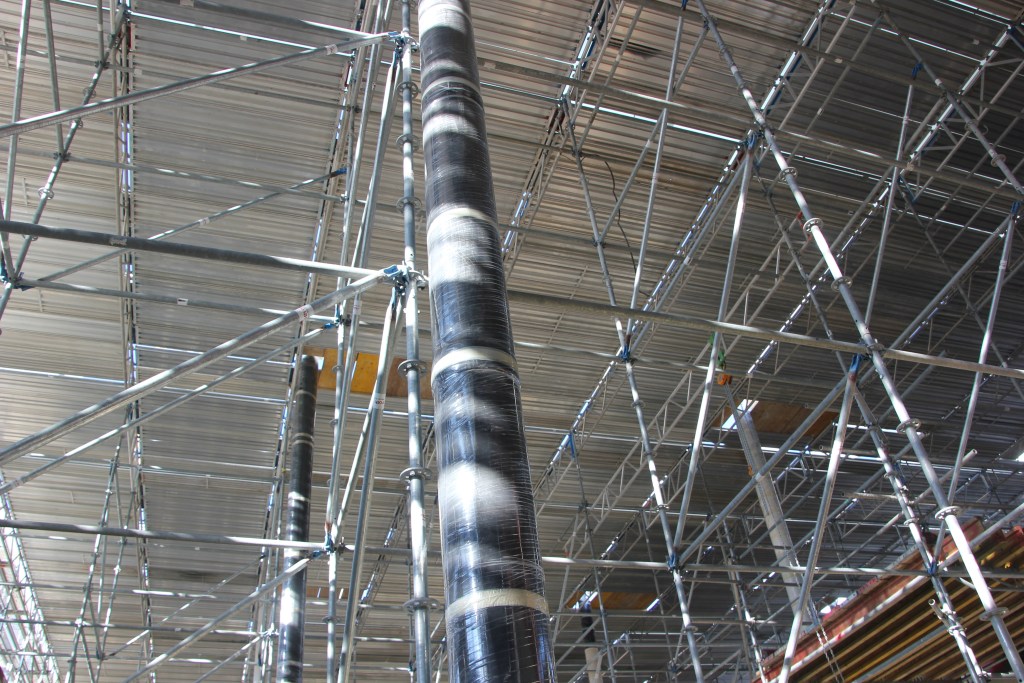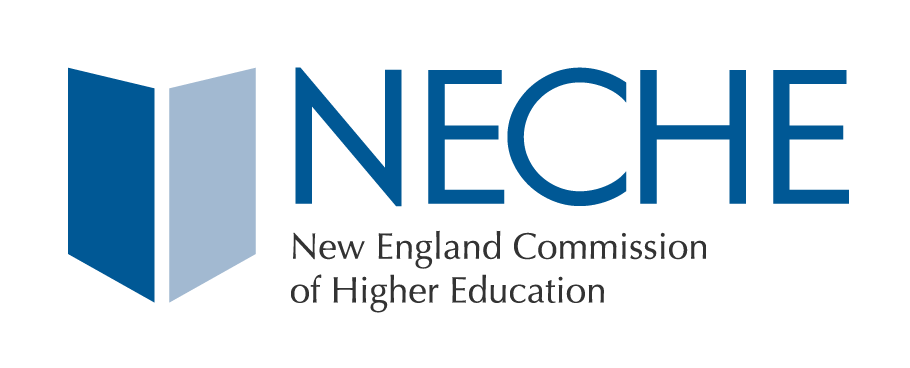It’s always humbling to realize that one of the institutions we accredit is very highly regarded within its own sphere of influence. The Ecole hoteliere de Lausanne (EHL), our first stop in Switzerland on this European road trip, is ranked as the world’s best university of hospitality management by international surveys that measure academic quality, graduate employability, and research.

At NECHE, we can say we knew the school way back when — for we (and before that, NEASC) have had a relationship with EHL that spans more than 25 years. EHL received its initial accreditation in 2003, making it one of the first international universities to receive that status from the Commission. I don’t know exactly what EHL looked like 18 years ago, but after our visit today I can only say those rankings are probably an understatement.

Founded in 1893 as the world’s first hotel school, EHL is growing and exponentially expanding in terms of its enrollment, mission, and footprint.

On the Lausanne campus, our tour was led with Swiss precision by Dr. Juan-Francisco Perellon, chief academic officer, and Dr. Nathalie Mather-L’Huillier, accreditation project manager. Construction hats atop our heads, we walked through EHL’s mind-bending, three-phase $300 million (U.S.) new addition which is adding over 250,000 square feet of facilities. You will see from the photos what an extraordinary campus this will be and literally every single material, piece of furniture, and design choice was of the finest possible quality.


(EHL’s campus restaurant, by the way, is the first educational restaurant in the world to hold a Michelin star for three years straight.) That should give you a sense of excellence that is evident everywhere.


Outside Switzerland, in addition to partnerships across the globe, EHL has opened a campus in Singapore. Speaking of international relations, EHL’s 3,700 students come from 120 countries, while its 160 faculty members come from more than 20 (and more than 30 with professional staff included). They all chose EHL for its promise of both academic and professional preeminence, combining practical training and hands-on internships with real-world business and research projects, preparing graduates to lead in their fields.
EHL offers a Bachelor of Science degree in International Hospitality Management and several Master degree programs including Hospitality, Global Hospitality Business, and a joint Masters in Wine and HospitalityManagement with KEDGE in France. As a tribute to the demand for these programs, even during COVID, enrollment at EHL set a new record, only to have that record broken again in the Fall of 2021.


The list of surprising things I learned about EHL is quite long, but chief among them is the fact that only about half of their students actually enter the hospitality industry. The other half begin their professional careers in health care, education, consultancy firms, international chains, banking, finance and luxury retail. The common theme? EHL students graduate with an aptitude in innovation and creativity, deeply understanding and expressing the values of empathy and service.

One memorable part of our visit was to Hotel-Restaurant de l’Union in Lausanne. As part of its commitment to social responsibility, EHL has just signed a five-year partnership with Demarche, the non-profit that runs L’Union among other ventures. Sebastien Elind is the passionate Director of L’Union that houses two distinct programs: it serves as emergency housing for up to eight months for 41 people who have been directed there by the government social service agency; and L’Union is also a fine restaurant where those who have not found work for at least two years, including refugees, are trained in the service industry in such areas as food service, housekeeping, and reception. After completing a mentoring program that can last from three to six months, in which staff from EHL conduct master classes and provide other support, the trainees are placed in jobs with the hospitality industry.


EHL was the third stop on our European tour, with three more to come. The first two (Paris College of Art and The American College of the Mediterranean) are both at the candidacy stage of NECHE accreditation, working diligently to meet all of NECHE’s standards in the early cycle of continuous improvement that is the primary principle of accreditation. EHL is in a different place, having achieved accreditation almost twenty years ago and about to prepare its second self-study, seeking re-affirmation. One thing that was most affirming to me was Dr. Juan-Francisco Perellon’s contention that instead of being regarded as a burden or onerous oversight, NECHE’s accreditation process is (and has been) a means by which EHL is able to assess, measure, be peer-reviewed, and fully supported in its mission to improve the quality of the education it is offering its students. EHL has become a far stronger institution than it was a decade ago, and clearly its effort to achieve excellence across all fronts is unrelenting.

My conversation (below) with President Rochat, one of the chief architects of EHL’s master plan of improvement, is a must-hear. He understands and has prepared EHL well for the evolution of higher education that is already happening –moving from a traditional model where undergraduate and graduate credentials are essential to professional success, to one where lifelong learning becomes a significant aspect of one’s personal journey.
President Rochat suggests that in a decade, as the market segments, lifelong learning will comprise 30% of EHL’s enterprise and that building bridges between the traditional and less traditional will be key to remaining viable.
He also shared that one of the mantras of EHL is that no matter the task, every student and staff member must strive to be excellent. As a reflection of this value, every workspace — be it the first-floor lobby or the ground-floor garage–must be maintained and respected with scrupulous cleanliness and tidiness. For me, this pretty much explains all of the Swiss culture…as well as the reputation for hospitality excellence that distinguishes Ecole hoteliere de Lausanne.

